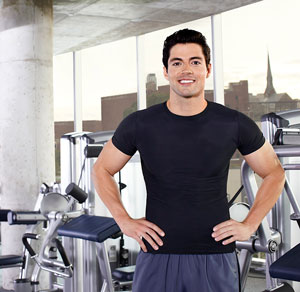
Faculty Member, Sports and Health Sciences at American Public University
I recently read an article about some of the top jobs people are flocking to —both as their main profession and as a second career. Personal training was on that list. I love that I am in a profession that continues to not only be popular, but necessary. However, I am concerned that many people think they can be a successful personal trainer simply because they have great genetics and are in good shape, they have been a successful athlete, or they just love to work out.
Personal trainers are responsible for interviewing clients and assessing their ability to take part in fitness programs. A proper education will arm the personal trainer with the breadth and depth of knowledge needed to design safe, effective individualized exercise programs for clients. This knowledge will also prepare trainers to take a national certification exam.
An undergraduate education for personal training candidates will provide knowledge and experience in health screening, exercise testing, exercise programming, nutrition, and special populations. Knowledge in these areas is critically important in developing safe and effective fitness programs that help clients to reach their goals.
There are many new fitness trends and workout programs every year. Unfortunately, everyone’s enthusiasm for doing these new and exciting workouts can lead to unnecessary injuries. And, of course, these injuries interfere with the ability to reach fitness goals.
A bachelor’s degree in the field of exercise science gives the personal training candidate a solid science foundation along with a great knowledge base to apply to the many different training situations that come up. By contrast, years of experience as an avid fitness buff or a successful athlete does not afford the same knowledge or skills.
An undergraduate degree will help the personal trainer to pull knowledge from core courses such as exercise physiology, anatomy and physiology, kinesiology, and weight training. This background can also be applied to effective health appraisals, exercise testing (assessments), and exercise prescription (appropriate program design).
It is the responsibility of the educational institution to help students discern the difference between information in the mainstream media and that which is science-based, as well as to guide them in the practical hands-on application of this material. It is for these reasons that a foundational education in the exercise sciences should be the norm for the profession of personal training.
About the Author:
Karyn Gallivan, MS, ATC, CSCS, NSCA-CPT, is a certified athletic trainer with over 20 years of experience in all applications of sports medicine. Her versatile background includes traditional athletic training in university, high school, and clinical settings, as well as training in the areas of strength, conditioning, and personal fitness.
Comments are closed.